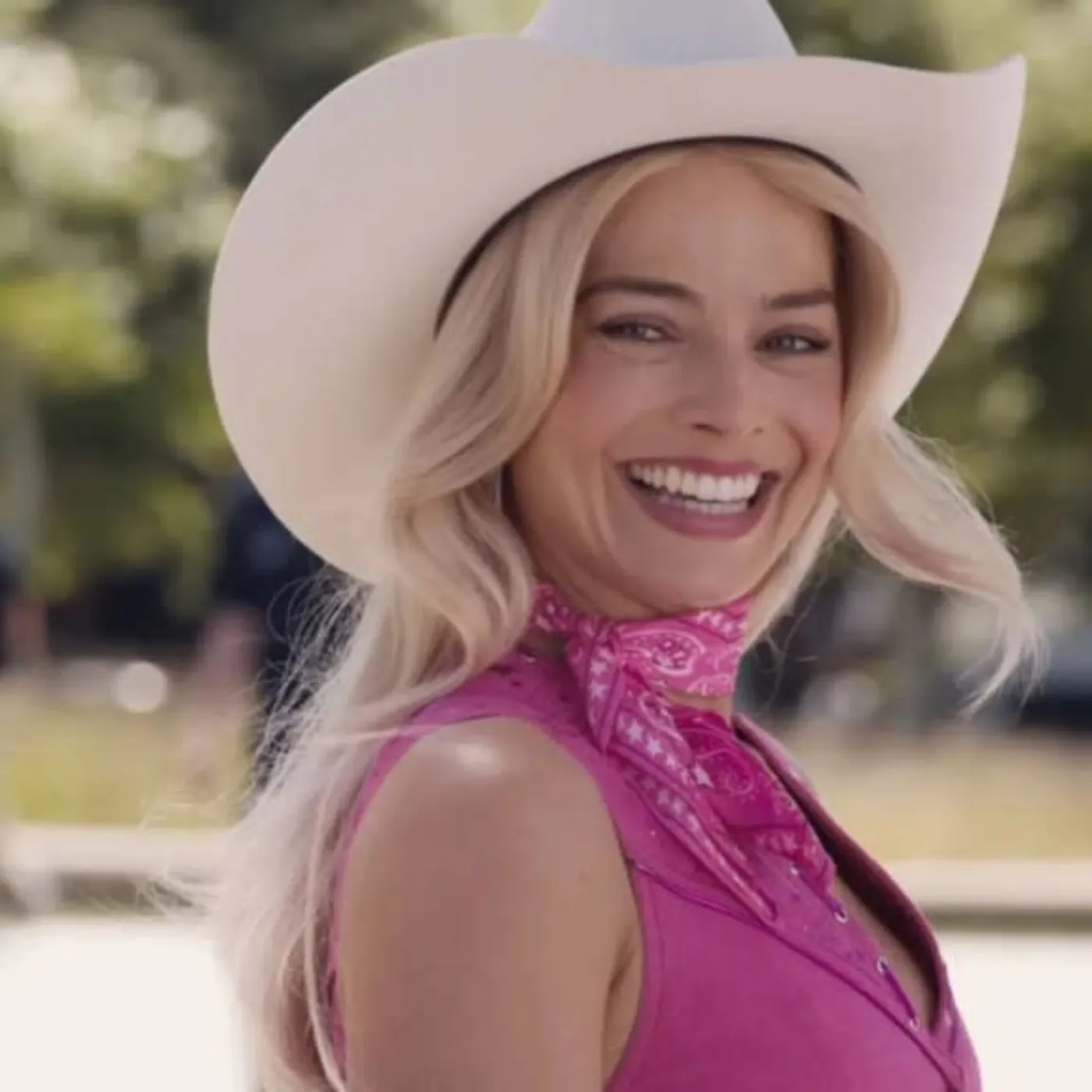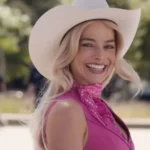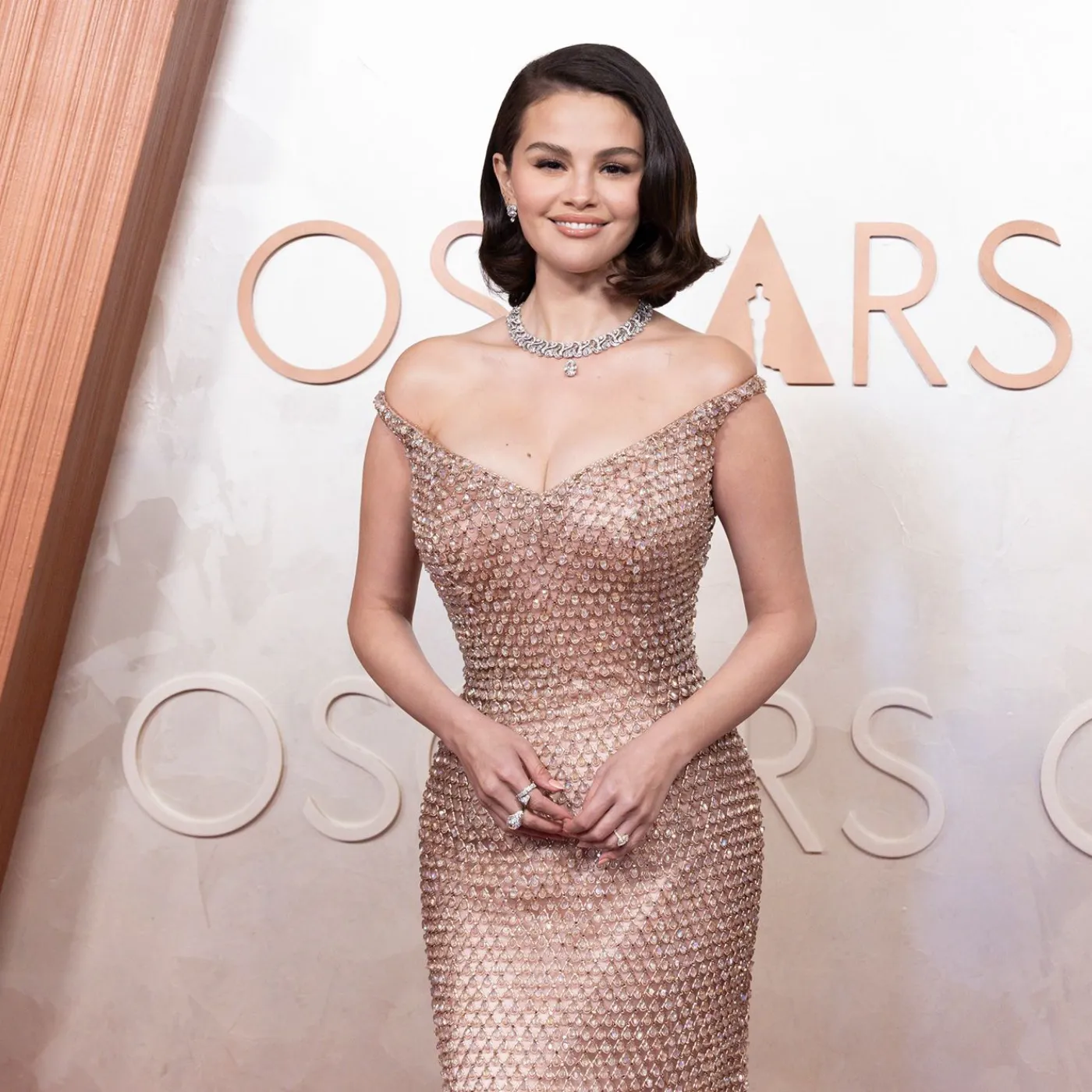

Before Barbie There Was Something Dirtier That Made Margot Robbie Unstoppable
In almost every viral post or nostalgic movie recap on social media, one phrase keeps popping up when people talk about Margot Robbie: “Her big break was The Wolf of Wall Street.” It’s been echoed in articles, captioned in fan edits, and shouted from every red carpet flashback reel.
But what if that wasn’t really the truth?
More than a decade after Martin Scorsese’s chaotic, dopamine-drenched financial epic hit theaters, the narrative around Margot Robbie’s career has taken on a life of its own. She’s now one of the most bankable, fashion-forward, and universally recognizable stars on Earth. But the idea that “The Wolf of Wall Street” was her breakthrough isn’t just oversimplified — it’s flat-out misleading.
So where did Margot Robbie’s meteoric rise begin? And why does Hollywood keep ignoring the actual road she took?
The Convenient Narrative Hollywood Keeps Repeating
It’s easy to see why “The Wolf of Wall Street” is labeled as Robbie’s launchpad. The movie was a massive box office success. It featured her in a bold, confrontational role across from Leonardo DiCaprio, with Scorsese at the helm and Oscar buzz following every scene. Social media clips of Robbie’s performance still go viral on TikTok and Facebook Reels, accompanied by captions like “The scene that changed everything.”
But let’s be clear: this story only works because it’s convenient.
It lets the industry pretend that she came from nowhere. That she was “discovered.” That she got lucky.
That’s not what happened.
Before Wall Street There Was Ramsay Street
Before Margot Robbie was stealing scenes in New York’s financial underworld, she was grinding it out in Australia’s soap opera machine. From 2008 to 2011, she starred in “Neighbours,” the same show that launched Kylie Minogue, Liam Hemsworth, and Guy Pearce.
There, she didn’t play some shadowy temptress or manipulative bombshell. She played Donna Freedman, a character who evolved from a troubled teen to a strong-willed, emotionally complex young woman. Robbie shot hundreds of episodes, mastered the soap’s relentless production pace, and built a loyal audience long before American media “discovered” her.
So why is “Neighbours” almost never mentioned when people talk about her career?
Because it doesn’t fit the Hollywood fairytale. Because it’s not dripping in controversy, luxury, or Wall Street sleaze. It’s just honest work.
And that’s not as marketable.
The Post-Wolf Identity Trap
After The Wolf of Wall Street, the industry tried to trap Robbie in a role she never asked for: the “It Girl”. The “hot blonde with bite.” The shock-value actress who made people uncomfortable in all the right ways.
She was handed scripts that looked good on paper but asked little of her artistry. She could’ve been typecast for life. But she didn’t play along.
Instead, Robbie flipped the game.
She co-founded LuckyChap Entertainment and began producing the kind of roles no one would give her. She developed “I, Tonya”, a project that earned her Oscar recognition and serious industry respect. She backed “Promising Young Woman”, which took on uncomfortable narratives in bold new ways. She turned “Barbie” from a joke into a pop culture juggernaut.
And she did all this not because of The Wolf of Wall Street — but in spite of it.
What Viral Culture Gets Wrong About Fame
Scroll through Facebook and you’ll see it. Edited scenes. Screengrabs. Fan-made reels with captions like “Her accent was everything in this scene” or “This is when the world fell in love with her.”
But virality isn’t the same as credibility. Just because a scene gets shared doesn’t mean it made someone. In fact, Margot Robbie’s real growth happened when nobody was watching — when she was taking risks, turning down roles, and rewriting the rules.
Fame isn’t built in one moment. It’s built in every decision before and after.
And yet, the social media narrative continues — not just because it’s easy, but because it’s algorithm-friendly. It feeds into the drama. The glitz. The scandal.
Meanwhile, the truth gets buried.
Hollywood’s Obsession With “Breakthroughs” Is Getting Old
Every rising star gets slapped with a “breakout role” label. One movie. One scene. One quote. It simplifies complex, painful, years-long journeys into soundbites that can be packaged and sold.
But that kind of storytelling isn’t just lazy — it’s harmful.
It erases the hustle. It ignores the creative decisions. It overlooks the power moves made off-screen. In Robbie’s case, it disregards her producing, her mentoring, her vision, and her refusal to be defined by a role that served someone else’s narrative more than hers.
Margot Robbie didn’t break out. She broke through. Repeatedly. Quietly. Strategically.
The Truth About Why Hollywood Keeps Telling The Same Story
Let’s call it what it is: branding.
The industry wants to say “The Wolf of Wall Street” made her. It ties her fame to one of their biggest male-driven movies of the decade. It makes her success seem like a byproduct of DiCaprio’s glow, Scorsese’s genius, and a viral dress.
It lets them take credit for her.
But they didn’t make her. She made herself.
A Timeline They Don’t Want You To Remember
-
2008-2011: Stars in Neighbours, becomes a household name in Australia
-
2013: Appears in About Time, barely mentioned by the press
-
2013: The Wolf of Wall Street launches her into U.S. headlines
-
2016: Takes on Harley Quinn, reinvents the character completely
-
2017: Produces and stars in I, Tonya, earns first Oscar nom
-
2020: Executive produces Promising Young Woman
-
2023: Barbie becomes a cultural phenomenon and billion-dollar hit
Still think “The Wolf” was her breakthrough?
The Facebook Version vs. The Real Version
| Narrative | Facebook Version | Reality |
|---|---|---|
| First Big Role | The Wolf of Wall Street | Neighbours (500+ episodes) |
| Who Made Her | DiCaprio, Scorsese | Herself, LuckyChap |
| Defining Project | Wolf scene with Leo | I, Tonya, Barbie, Promising Young Woman |
| Career Style | One breakout moment | Long-term vision and control |
Why This Conversation Still Matters
It’s not about discrediting The Wolf of Wall Street. It’s about giving credit where it’s due.
Too often, female stars are framed as lucky. As if someone “gave” them a platform. As if a man or a moment granted them relevance.
Margot Robbie’s story is the opposite. She didn’t ride anyone’s coattails. She built the damn vehicle.
Final Word: Don’t Let the Internet Rewrite Her Story
It’s easy to scroll past a viral clip and assume you understand a person’s journey. It’s harder to stop, question, and realize how much has been lost in translation.
So next time someone posts a meme saying “This is when Margot Robbie became a star,” ask yourself:
Is that really true?
Or is that just the version that fits best in a caption?
If you’re still thinking The Wolf of Wall Street made her, maybe it’s time to rewatch her actual filmography — and see how wrong we’ve all been.



















Post Comment